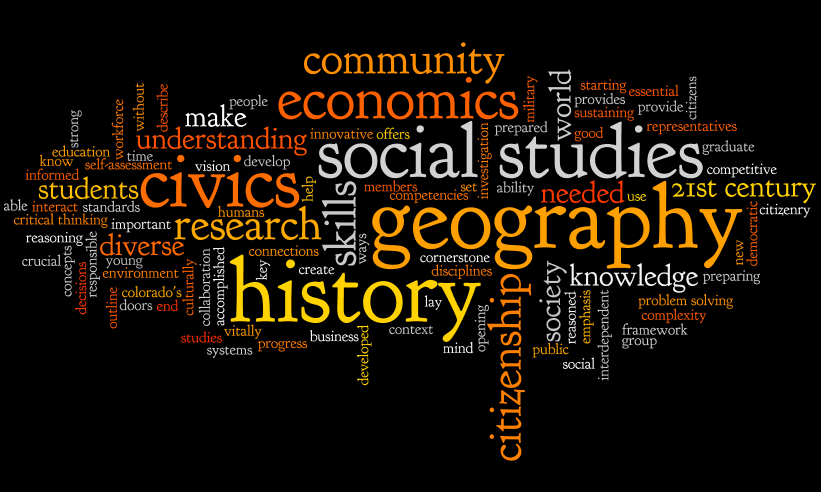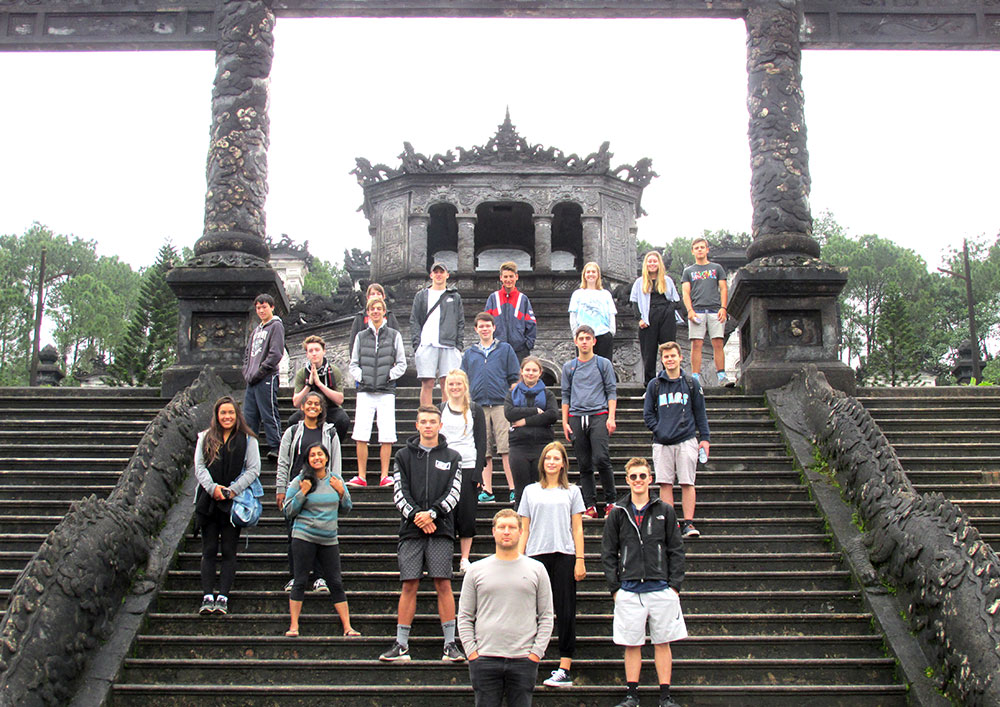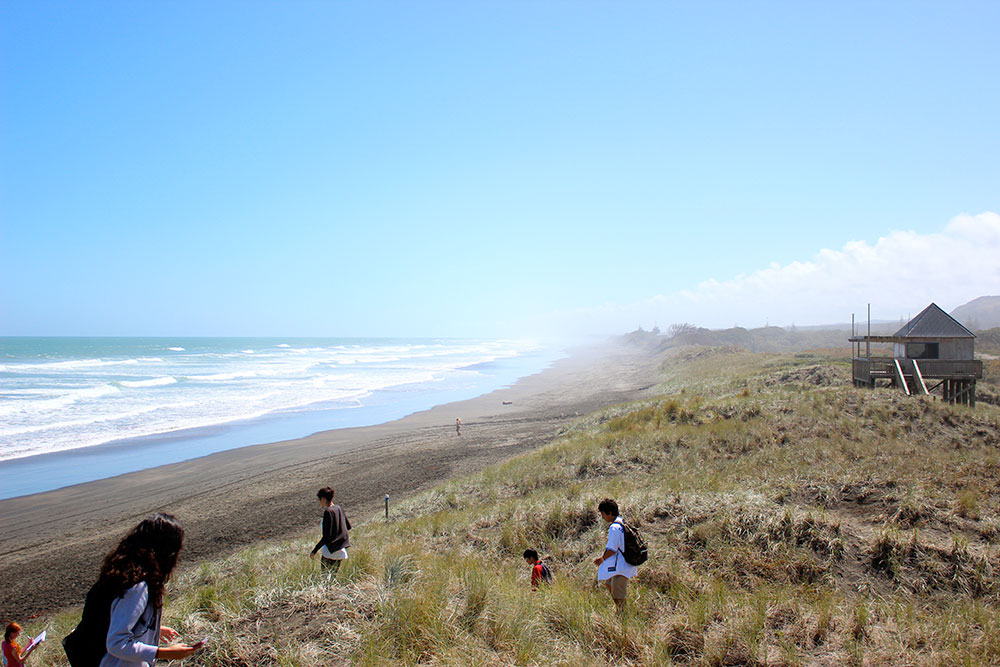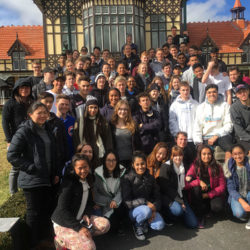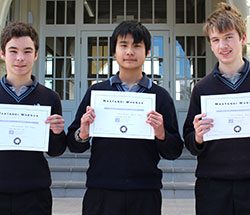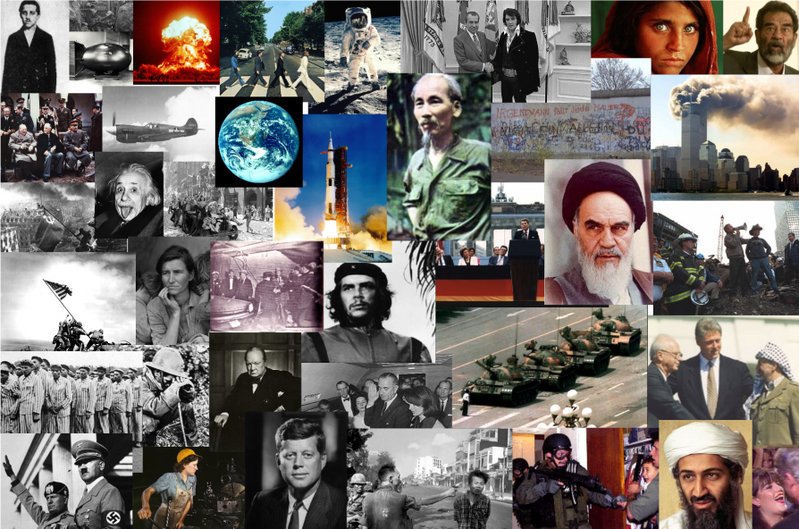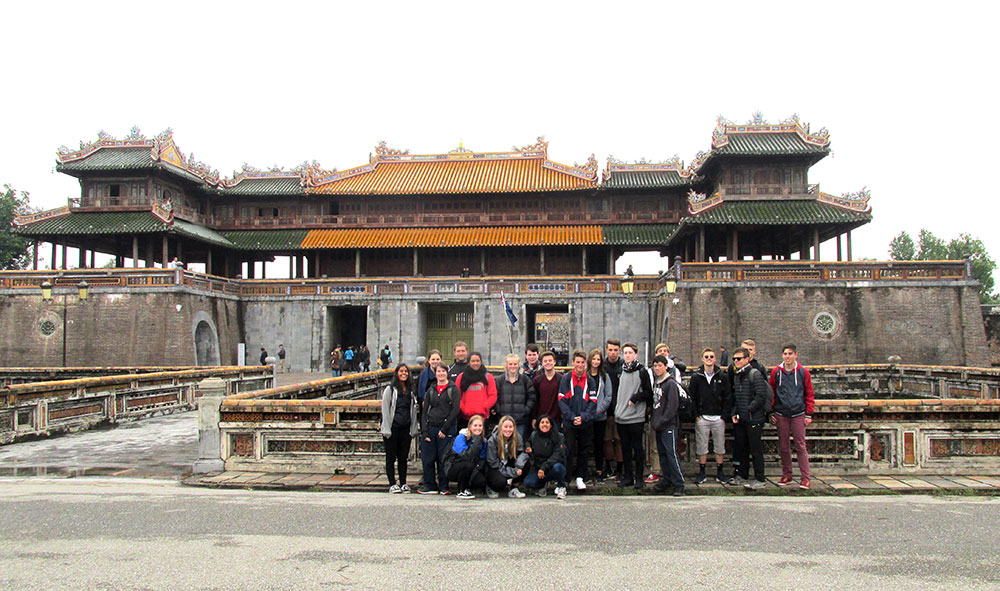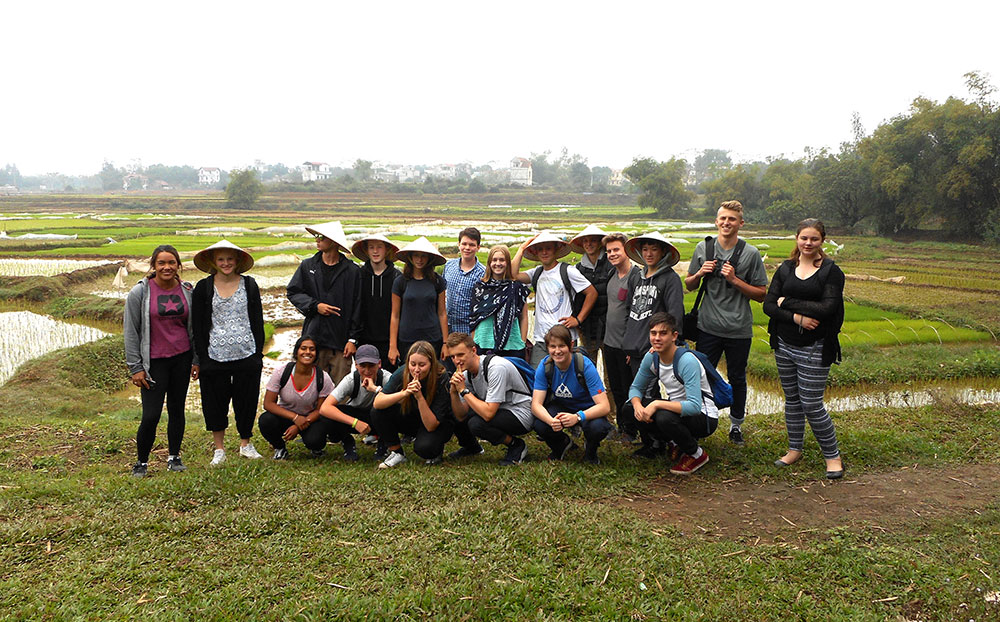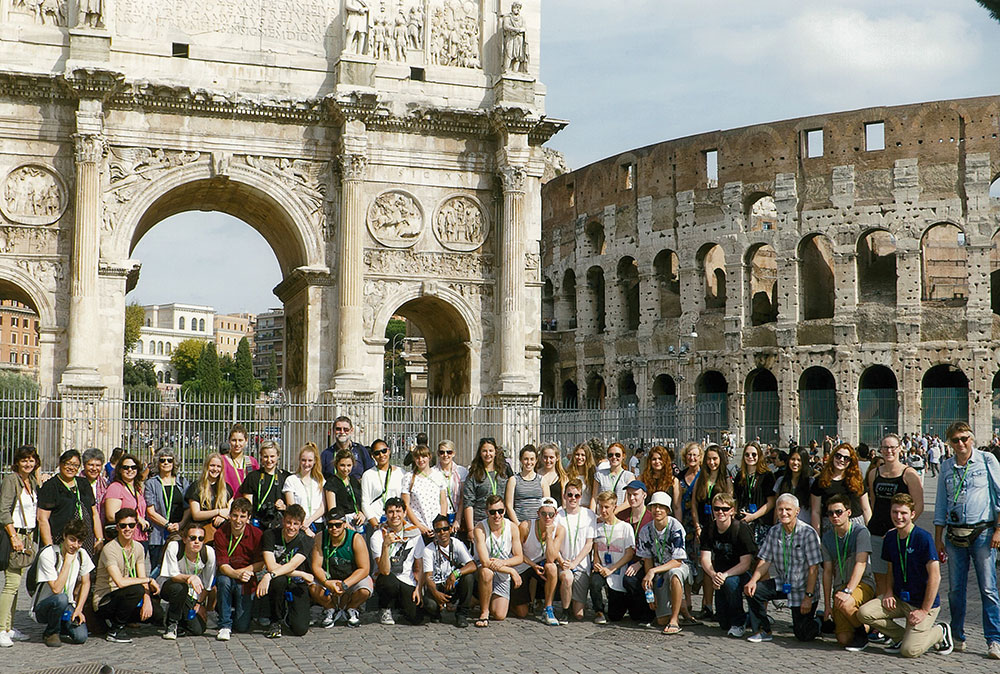The Social Science Faculty at MAGS inspires our students to observe, interpret and understand the world around them and their place in it.
The Social Sciences learning area is about ‘how societies work and how people can participate as critical, active, informed and responsible citizens. Contexts are drawn from the past, present, and future and from places within and beyond NZ’ (NZ Curriculum).
Through the Social Sciences our students develop specific knowledge and ideas, an understanding of key concepts as well as applied skills that enable them to better understand, participate in, and contribute to the local, national and global communities in which they live and will work. Our students engage critically with current issues and evaluate the sustainability of alternative social, economic, political and environmental practices. Our courses are relevant, thought-provoking, challenging, interesting and fun.
We hope our students will be life-long learners in our subject areas, but if they do not continue specifically in the Social Sciences, they will still develop the following skills that will support their learning in other Senior school subjects and at tertiary level and beyond;
- Written and verbal communication skills and digital literacy
- Critical, creative and reflective thinking, analytical skills and problem-solving
- Statistical analysis, numeracy, mapping and graphing
- Experience in inquiry research methodology
- Self-management & ability to meet deadlines
- Understanding perspectives
- Developing independent viewpoints
- Social and co-operative skills
Year 9 and Year 10 Junior Social Studies – compulsory core subject
Topics are drawn from NZ and around the world, from the past, the present and the future and include:
Our topics include:
Year 9: Te Taiao (the environment), Migration and Change (Pacific and Polynesian focus) and Our World – Resources, Globalisation and Population.
Year 10: Powering Humanity, Aotearoa and Overseas Conflicts, Te Tiriti O Waitangi, Systems of Government. Current Events and Social Sciences Skills are interwoven throughout the course.
Social Studies also contributes to our students understanding of:
- Identity, culture and organisation
- The relationships that exist between people and the environment
- The past and present and to imagine possible futures
- Their role in the economy and how economic decisions affect individuals and communities
- The social inquiry approach to learning
- Different values, viewpoints and perspectives
Assessments:
- A range of class and home-based assignments completed individually and/or in groups are used to evaluate students’ understanding of concepts and level of skills. Emphasis is placed on inquiry and research, justifying a course of action on an issue, working with others and formal essay writing.
- Internal skills exams and topic exams
There is also an Option subject available in Year 10 called Global Perspectives. This covers a range of topics that give our students access to more distinctly separated ‘geography’ and ‘history’ learning areas.
Years 11-13 Option subjects
Geography - NCEA Levels 1, 2, 3 and Scholarship
Geography is a subject packed with ideas about various aspects of the world. Geography promotes understanding of how people and the environment interact together and the patterns that result at different places, times and scales. It is a contemporary course concerned with resolving issues about the environment and sustainable development and has never been more relevant with regard to issues such as global warming, the impacts of migration and infrastructure needs such as housing and transport provision.
Studying Geography helps you understand the factors that have influenced your heritage and that currently impact where you can be and what you can do. Geography is an important link between the natural and social sciences and can be studied as either a ‘science’ or ‘arts’ subject at university. Geography standards contribute towards both literacy and numeracy university requirements.
The topics through Levels 1-3 include:
- Natural/Physical Geography: extreme natural events (volcanoes and tropical cyclones); natural environments – Waitakeres and South Island High Country; coastal processes – Muriwai Beach
- Cultural/Human Geography: population Issues; global inequalities in development; tourism development in Rotorua
- Short studies covering a changing topic range – contemporary geographic issues eg; geothermal safety; mining; human trafficking etc; – global patterns eg; fertility/ageing populations; urbanisation; access to safe water etc; research project eg; holiday patterns; microclimates at MAGS; interacting coastal processes etc.
- Applied Skills: graphing, mapping, analysing and researching, conceptual understanding of key geographic concepts, and written, verbal and digital presentation of ideas
Log in to SchoolPoint for course information and options
Geography leads to…
URBAN PLANNING || BUSINESS || MARKETING || RESEARCHER || CARTOGRAPHER || GIS (COMPUTING) || DOC and NATIONAL PARKS RANGER/ADMINISTRATOR || CLIMATOLOGIST || GEOLOGIST || ENVIRONMENTAL MANAGER || WEATHER FORECASTER || SOIL SCIENTIST || VALUER || HYDROLOGIST || WRITER || LAND SURVEYOR || TEACHER || STATISTICIAN || EXPORTER || DEMOGRAPHER || COMMUNITY DEVELOPMENT || TRANSPORT PLANNER || POLICY ANALYST || LIBRARIAN || REAL ESTATE || CIVIL SERVICE || LECTURER || TRAVEL AGENT || HISTORIAN || CONSERVATOR || DIPLOMAT || GEOPHYSICIST || IMMIGRATION OFFICER || ASTRONOMER || ECONOMIST || ENVIRONMENTAL LAW ||
And many, many more …
History - NCEA Levels 1, 2, 3 and Scholarship
History provides a framework of knowledge that inspires students to understand New Zealand society and to also gain an insight into the social, economic and political issues shaping the world today. There is an emphasis on the part individuals and groups have played in past events and a focus on how perspectives on an issue may differ. History enhances thinking, reasoning and analytical skills as well as developing specialist inquiry research, resources interpretation and written and verbal communication skills. In early 2016 the History Department led a successful trip to Vietnam for Year 12-13 students.
The topics through Levels 1-3 include:
- 20th century NZ significant event eg; Springbok Tour, Rainbow Warrior sinking etc
- Civil Rights in the USA
- Conflict in Israel/Palestine; Vietnam and Indochina
- Weimar Germany and the Nazi State
- Russian Revolution/ Cold War Era (1950s-70s)
- NZ History – early contact period
- Conspiracy theories
Click here to find out more in the the Senior Academic Guide
History leads to…
LAW || JOURNALISM || PUBLISHING || POLITICAL SCIENCE || RESEARCH || MUSEUM CURATOR || ARCHIVIST || LIBRARIAN || GENEALOGIST || BUSINESS || BROADCASTING || TV PRODUCTION || MARKETING || POLICY ADVISOR || RECORDS MANAGER || SALES || ARTS || INSURANCE || TEACHING || ADVERTISING || AUTHOR || CIVIL SERVICE || BANKING || GOVERNMENT AGENCIES || ADMINISTRATION SERVICES || POLICY ANALYSTS || CULTURAL MANAGEMENT || ACCOUNTANT || LECTURER
and many, many more…
Classical Studies - NCEA Levels 2, 3 and Scholarship
Classical Studies offers students the opportunity to learn about the origins of Western culture through the study of the Ancient Greeks and Romans and the ways these cultures have influenced people through history, and continue to influence our modern society and culture. Most students have some experience of the myths and legends of the ancient world and Classical studies seeks to build on this experience while expanding our students’ knowledge in the areas of mythology, art, literature and history.
Students are provided with the opportunity to develop their critical and creative thinking as well as their skills in researching, processing, analysing and presenting information.
Level 2 concentrates on the study of Ancient Greece and Level 3 concentrates on Ancient Rome. Students can begin studying this subject at either Year 12 or Year 13. NCEA standards at both levels allow students to gain credits towards UE Literacy. In addition, the Level 3 course is one of the available ‘language rich’ (List A) subjects which must be taken for students wanting to study Architecture, Health Sciences or Nursing at Auckland University.
Since 2006 there have been five tours to Greece and Italy where students have been able to see first-hand many of the sites they study in class. A sixth trip is planned for 2017.
Click here to find out more in the the Senior Academic Guide
Classical Studies leads to…
LAW || JOURNALISM || PUBLISHING || POLITICAL SCIENCE || RESEARCH || MUSEUM CURATOR || ARCHAEOLOGY || ARCHIVIST || LIBRARIAN || GENEALOGIST || BUSINESS || BROADCASTING || TV PRODUCTION || MARKETING || POLICY ADVISOR || RECORDS MANAGER || SALES || ARTS || INSURANCE || TEACHING || ADVERTISING || AUTHOR || CIVIL SERVICE || BANKING || GOVERNMENT AGENCIES || ADMINISTRATION SERVICES || POLICY ANALYSTS || CULTURAL MANAGEMENT || ACCOUNTANT || LECTURER
and many, many more…
Scholarship
Geography, History and Classical Studies may all be taken at Scholarship level by students who are highly academic. Scholarship exams or projects require students to draw from their web of knowledge and use multiple resources to investigate a topic in great depth and with lateral, independent thinking. Extra tutorials are offered through the year for students preparing for Scholarship.
Travel and Tourism Studies – NCEA Levels 2, 3
This is a course designed for students who do not meet the entry-requirements for Geography/History and/or have a genuine interest in joining the tourism industry. The course materials and assessment are written by an NZQA-approved external provider and students who complete and pass this course at both Levels 2 and 3 may be eligible for a nationally recognised certificate enabling direct entry and credits into tertiary level Travel and Tourism courses.
Click here to find out more in the the Senior Academic Guide
Social Science Studies – NCEA Levels 1, 2
This is a course designed for students who do not meet the entry criteria for Level 1 & 2 Geography/History. The course is 100% internally assessed and allows students to have their learning supported and scaffolded in a more individualised manner. The course comprises a mix of Geography, History and Senior Social Studies NCEA standards.

